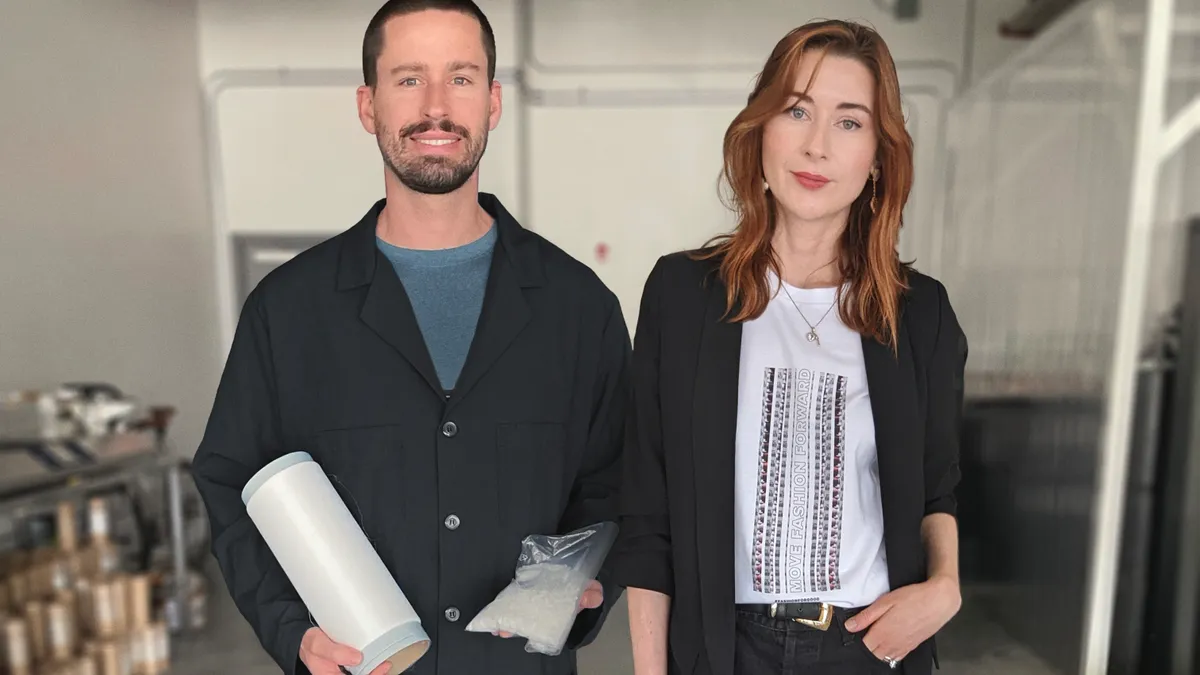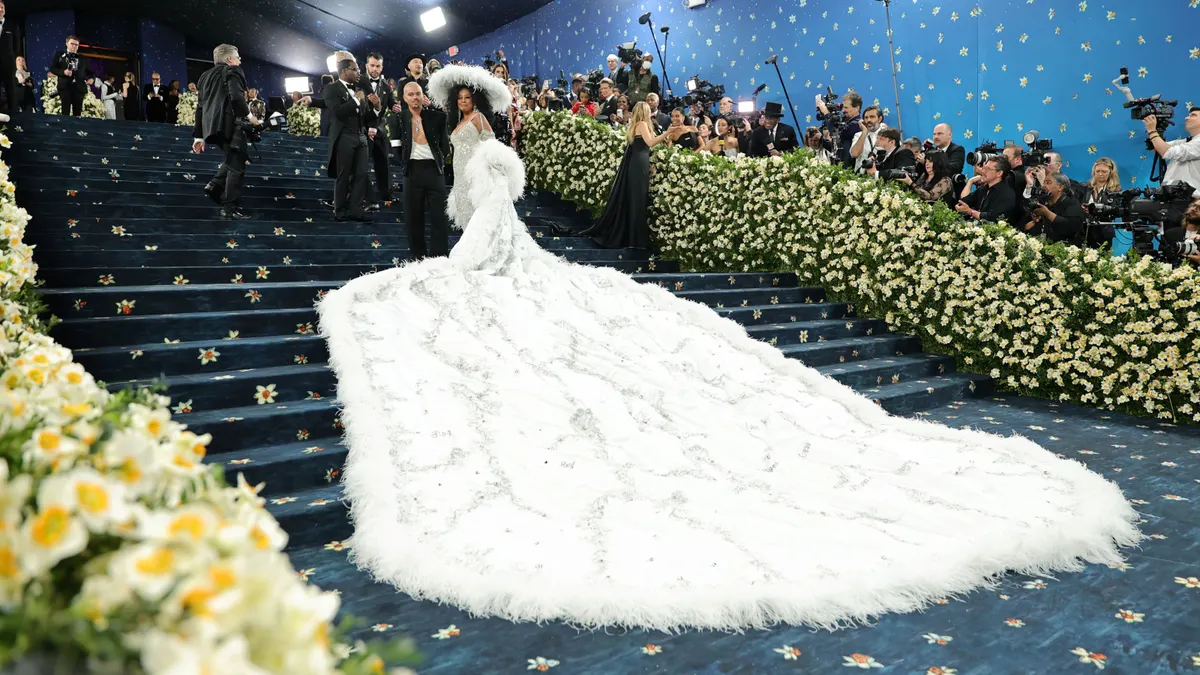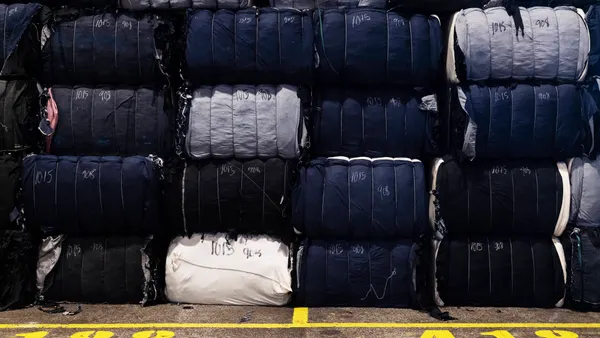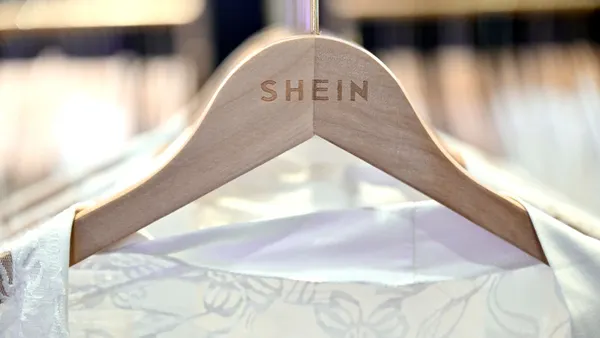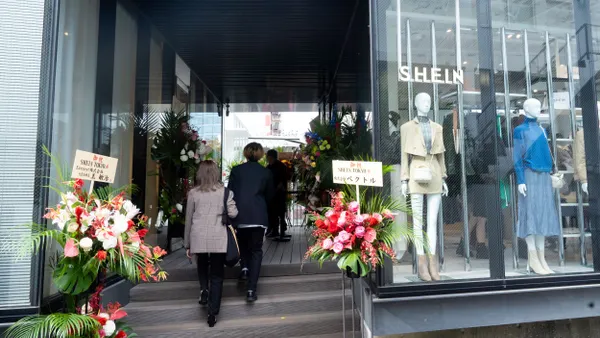Dive Brief:
- Kintra Fibers, a Brooklyn-based startup that makes a bio-based alternative to polyester, landed $8 million in funding to increase production and open a commercial facility, the company announced in a press release sent to Fashion Dive.
- H&M Group led the series A funding round. Other participating investors include Bestseller’s Invest Fwd, Fashion for Good, New York Ventures, Tre Ventures, Tech Council Ventures and Fab Ventures.
- The funding will also support piloting the use of Kintra’s fibers in apparel across its brand partners. Those include H&M, Reformation and Inditex, the parent company of Zara.
Dive Insight:
Kintra Fibers is aiming to reduce the fashion industry’s reliance on polyester, a material that’s derived from petroleum and doesn’t break down in landfills. It also leaks microplastics into washing machines, where they eventually work their way into waterways.
Many brands have been touting their use of recycled polyester to reduce their climate impact. While recycled polyester production emits less carbon than virgin polyester production, it still comes with a host of issues. For example, some research has shown that recycled polyester leaks even more microplastics than virgin polyester.
Kintra Fibers says its polyester alternative reduces carbon emissions by 95% compared to traditional polyester and that it can be composted. Moreover, the company says the fabric’s soft feel and its ability to stretch eliminates the need to blend it with other fibers, such as cotton or spandex, making it easier to recycle either mechanically or chemically.
Polyester is often blended with other fabrics, making recycling difficult. Some companies are attempting to tackle this issue, including Circ, which has come up with a method to chemically separate cotton and polyester. Yet the ability to recycle polyblends at scale has proved elusive for the fashion and apparel industry.
The startup says it plans to expand to a commercial facility and increase its ability to produce yarn and resin.
Each brand piloting Kintra’s fabric is using it in different ways, according to Katrin Ley, managing director at Fashion for Good. The company has tested its fiber across a variety of constructions, including knit fabrics, twill and satin.
“The consortium gains the benefit of advancing multiple applications using Kintra’s materials while prototyping just one,” Ley said in a statement.
Investors were also attracted to Kintra’s ability to produce its fiber on the same manufacturing equipment used to make polyester.
“This capability to scale quickly and cost-effectively is a major advantage of Kintra Fibers as they work towards their goal of reducing the fashion industry’s environmental footprint,” Erik Karlsson, investment manager at H&M Group’s investment arm, said in a statement.
Kintra Fibers previously raised $2 million in seed funding from Tech Council Ventures and Fab Co-Creation Studio Ventures, according to Crunchbase.



